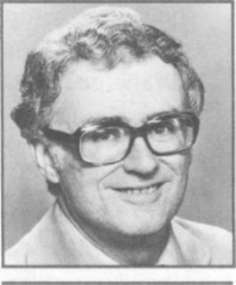 |
Home | Search | Browse | About IPO | Staff | Links |
 |
Home | Search | Browse | About IPO | Staff | Links |
|
 By ED McMANUS Funny thing about politics. You just can't count on much. You may think you're a cinch to be elected, but along comes an unexpected challenger to knock you out of the box. Or the reverse: You're in trouble, but the opposition steps on its feet. If Chicago's Democratic machine had been united in 1983, Harold Washington probably would still be an obscure congressman. But Richie Daley's challenge of Mayor Jane Byrne split the white vote and enabled Washington to win the Democratic nomination with only 36 percent of the vote — almost all of it from the black community. The fact that Republicans traditionally aren't a factor in Chicago politics, and that the 1983 Republican candidate, Bernard Epton, was particularly inept, enabled Washington to win the general election. This year was to be the year the whites recaptured City Hall. (Face it, that's the way an awful lot of people think about it in the most segregated city in the United States.) But the white politicians couldn't get along with one another. They watched Byrne self-destruct in the February 24 primary. Too many voters remembered what a lousy mayor she had been. Then they did their darnedest to split up the vote in the general election — with one Democrat, Donald Haider, running as a Republican and two other Democrats, Edward Vrdolyak and Thomas Hynes, in the race as third-party candidates. The central theme of all three campaigns was, "Why don't you other two guys get out and give me a one-on-one shot at the mayor?" Haider, a Northwestern University professor who served briefly as Byrne's budget director, had entered the race hoping Byrne would win the primary. If that had happened, he might have attracted significant black support and conceivably could have beaten her in the general election. Hynes, the Cook County assessor and former president of the state Senate, would be a powerful candidate against either Washington or Byrne, it was thought. But he couldn't make up his mind to run. So with time running out last November, Vrdolyak, the head of the anti-Washington bloc in the City Council, decided to get into it, defying the pollsters, who said he was wasting his time. Then, in December, Hynes announced his candidacy, clearly banking on Vrdolyak dropping out. Two days before the April 7 general election, the game of chicken ended — Hynes dropped out — and Washington wound up with 53 percent of the vote. What can we learn from all this? Washington could have been beaten, but only by a really strong candidate. U.S. Rep. Daniel Rostenkowski comes to mind, but he wasn't interested. Once again Washington rode to victory on the strength of an enormous black vote. He also improved his performance in the Hispanic community. Byrne was gracious in defeat, for a change. She endorsed Washington. Her career isn't over. 34/May 1987/IlIinois Issues Hynes was a flop. He tried to run a dignified campaign but wound up boring everyone. Then he let his name be used by the Chicago Sun-Times in connection with a claim that Vrdolyak had ties to organized crime; the story backfired because neither the assessor nor the paper had any proof, generating sympathy for the alderman. Hynes began to realize he might finish third, and he decided he had better drop out. Once considered a potential candidate for the U.S. Senate, Hynes' future as a candidate for major office is wiped out. Haider got only 4 percent of the vote but impressed many people with his campaign ability. He may run for another office next year. It's not inconceivable that the 1991 Democratic Vrdolyak received nearly 42 percent of the vote and took a step toward rehabilitating his public image. He discussed the issues; he didn't bring up race; he came off as intelligent and articulate. It's hard to predict his future, but he's far from down and out. In the event that Washington doesn't run for another term (he'll be 69 in 1991), the black community is likely to have trouble agreeing on a successor. It's not inconceivable that the 1991 Democratic primary could consist of Vrdolyak, another white and two blacks, meaning that one of the four could win with as little as 26 percent of the vote. As significant as Washington's reelection is the fact that he strengthened his control of the City Council. For the past year the council has been evenly split between 25 pro - and 25 anti-Washington aldermen, with the mayor holding the tie-breaking vote. As a result of the aldermanic elections. Washington has what appears to be a solid 25 votes loyal to him plus several others leaning to him — even including some of Vrdolyak's former allies. The mayor now has some experience in how to run a city, and he seems to be making an effort to get along better with his foes. The next four years, it is hoped, will be calmer than the lust four. But in Chicago politics, one never knows. May 1987/Illinois Issues/35 |
|
|